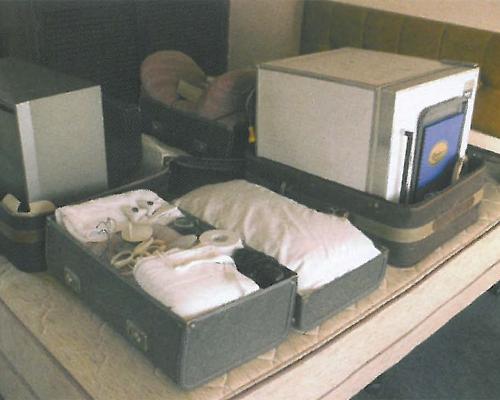Political art has been deeply out of favour for twenty years. But by its nature it is independent of the largely politically conservative 'art world'. Artists like Hans Haacke have continued to make art against the grain and retained their place in the spectrum. The last Documenta exhibition in Germany marked a moment when the world outside Europe and the USA was allowed to call the tune, the Nigerian curator turning the north-south divide around and selecting works which took account of the legacies of globalisation. It may be a coincidence that the German Chancellor has been one of a pair of lone leaders attempting to persuade others to turn around the thinking that demands a military solution to every obstacle. It may be part of the same preparedness to see the bigger picture and acknowledge other ways, other models for doing things.
On our shores the interest in indigenous culture on the part of the art world has been more than just creating a new consumer product. It has provided us with a learning opportunity to understand that there is a price to pay for the endemic racism of the vast majority of people. Artists and writers have been among the advance guard in communicating between the cultures and experiencing the stretching of the mind which always results.
This issue of Artlink focuses on what happens to a moderately successful multicultural society like ours, for whom the White Australia Policy had become a bad joke in the distant past and which had begun to relax and enjoy the stimulus of different cultures brought by newcomers& when the clock is suddenly turned back by a group of fearful myopics in the grip of 'border panic'.
It was obvious after 11 September that all thinking Australians would start to voice their revulsion to this attack of instant paranoia. The catalyst for many writers and artists has been their anger at the treatment meted out to asylum-seekers. Faced with the evidence of idiotic 'solutions', thousands of citizens have signed up to join associations in support of refugees, giving time and money to find ways to help. Their singular lack of success has been a sobering experience. As Therese Ritchie's poster Talk to Mr Howard indicates, there are very few in power prepared to listen or act on what they hear; moreover the media has lacked the independence to challenge the spindoctors. The people making up the massive anti-war rallies around the country and the world on 15/16 February 2002 have been labelled naive and not in possession of the 'facts'.
Last September Artlink sent out a call for work dealing with the 'war on terror', refugees, events involving boats, children, water etc, and talk of war with Iraq. This compilation of material is the result of the response from writers, artists and curators across the nation.
It may be the first documentation of this new upsurge of creators using their practice to oppose injustices and violence being perpetrated in their names, but it will not be the last we hear from them on the subject. As we go to press it seems certain that the USA will invade Iraq within a week or two and Australia will be part of George W Bush's absurd 'coalition of the willing'. As John Pilger said on the ABC recently it will take 50 - 100 years for us to rehabilitate our national image in the eyes of the rest of the world. Artists will have a part to play in that process.












